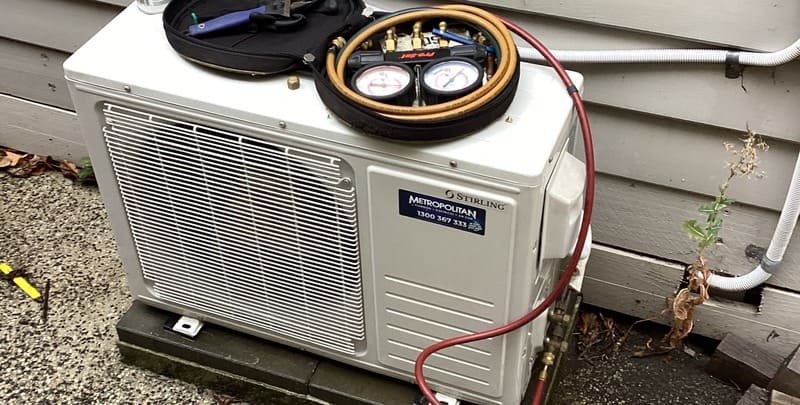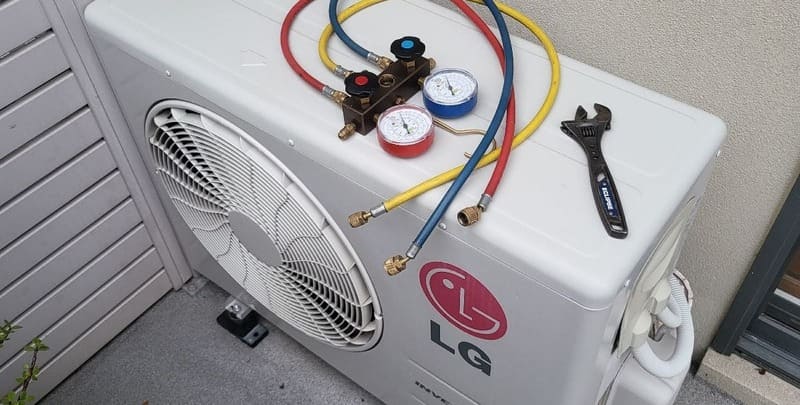
Air Conditioner Compressor: The Ultimate Guide
Air conditioning is essential for comfort, particularly during scorching Australian summers. At the core of every cooling system lies the air conditioner compressor, a critical component responsible for cooling the air. Selecting the right compressor is crucial for efficient cooling, whether for your home or vehicle.
In this comprehensive guide, we’ll delve into how air conditioners function, offer maintenance tips, and provide guidance on selecting replacements. Understanding air conditioning compressors is paramount for staying cool in Australia’s hot climate, ensuring comfort in your living spaces and vehicles alike.
Understanding the Air Conditioner
An air conditioner can function as a cooling or heating system (in a reverse cycle unit), maintaining comfort in various environments such as your home, vehicle or workplace.
At the heart of this system is the AC compressor, responsible for compressing refrigerant vapour into a high-pressure gas, initiating the cooling process. As this pressurised gas moves through the system, it releases heat and transforms into a liquid state, ready to absorb heat from the surrounding air.
The compressor, along with other components such as the condenser, evaporator and refrigerant, works in a continuous cycle to produce cool air. The evaporator facilitates the heat exchange process, cooling the air before distributing it out. The condenser then releases the absorbed heat outside, completing the cooling cycle.
Components of an AC Compressor
The AC compressor consists of several essential parts. Firstly, it includes the compressor itself, responsible for compressing refrigerant vapour to initiate the cooling process. Additionally, there’s the condenser, which facilitates the release of heat absorbed by the refrigerant. The evaporator plays a crucial role in cooling the air before it’s distributed into the cabin or living space.
Other important components include filters to ensure clean airflow, access panels for maintenance, and various parts that may need to be replaced in case of failure. Identifying these components and understanding their purpose is essential for maintaining an efficient air conditioning system.

How Air Conditioning Compressors Work
Air conditioning compressors play a crucial role in cooling systems by transforming refrigerant vapour into a high-pressure gas.
This compressed gas releases heat as it moves through the system. In the process, the refrigerant changes from a vapour to a liquid state, absorbing heat from the surrounding air. The compressor maintains the continuous cycle of compression and heat release, ensuring a steady supply of cool air.
Common Issues with AC Compressors
Air conditioner compressors can encounter various problems, affecting their efficiency and performance. One common issue is refrigerant leakage, which can lead to a limited supply of refrigerant vapour, impacting cooling capacity.
Failing compressors may result in inconsistent cooling or complete system failure, requiring replacement. It’s essential to identify and address these issues promptly to avoid expensive repairs or replacements.
Regular maintenance, such as checking for leaks and ensuring proper refrigerant levels, can help prevent compressor problems.
Choosing the Right AC Compressor
Selecting the ideal air conditioner compressor involves considering several factors. Firstly, assess the compressor’s compatibility with your AC system, ensuring it’s designed for the refrigerant vapour and cooling capacity required. Consider the extensive range of compressors available, tailored for different applications such as vehicles or residential cooling.
Check if the compressor comes with necessary parts and accessories for installation, to ensure a smooth process. If necessary, contact an expert for advice. Additionally, consider factors like fit, efficiency, and durability, agreeing on the best option for your needs.
Finding comprehensive information about various compressor models and their performance can aid in making an informed decision. Take your time to choose wisely, as selecting the right air conditioning compressor is crucial for optimal cooling performance and long-term satisfaction.

Hiring Professionals for Air Conditioner Compressor Services
When it comes to servicing your air conditioning compressor, hiring a qualified professional is essential. Look for technicians with expertise in handling refrigerant and compressor systems, ensuring they are familiar with the specific make and model of your AC unit.
Check if the service provider offers warranty coverage for their work, providing you with added peace of mind. Additionally, inquire about their availability and stock of replacement parts, ensuring they can promptly address any issues that arise.
Before agreeing to any services, make sure you understand the problem with your compressor and the proposed solution. Trustworthy professionals will provide transparent information about the repairs or replacements needed, helping you make informed decisions.
Keep your System Running Smoothly
Understanding your air conditioning compressor is crucial for maintaining a cool and comfortable environment. Regular maintenance, prompt repairs, and hiring qualified professionals are essential steps to ensure optimal performance.
Whether you’re replacing parts, installing a new compressor, or simply checking refrigerant levels, agreeing on these practices will help extend the life of your system and keep it running smoothly for years to come.
Please note: This information is provided for advice purposes only. Regulations differ from state to state, so please consult your local authorities or an industry professional before proceeding with any work. See our Terms & Conditions here.
Published: 19 March 2024